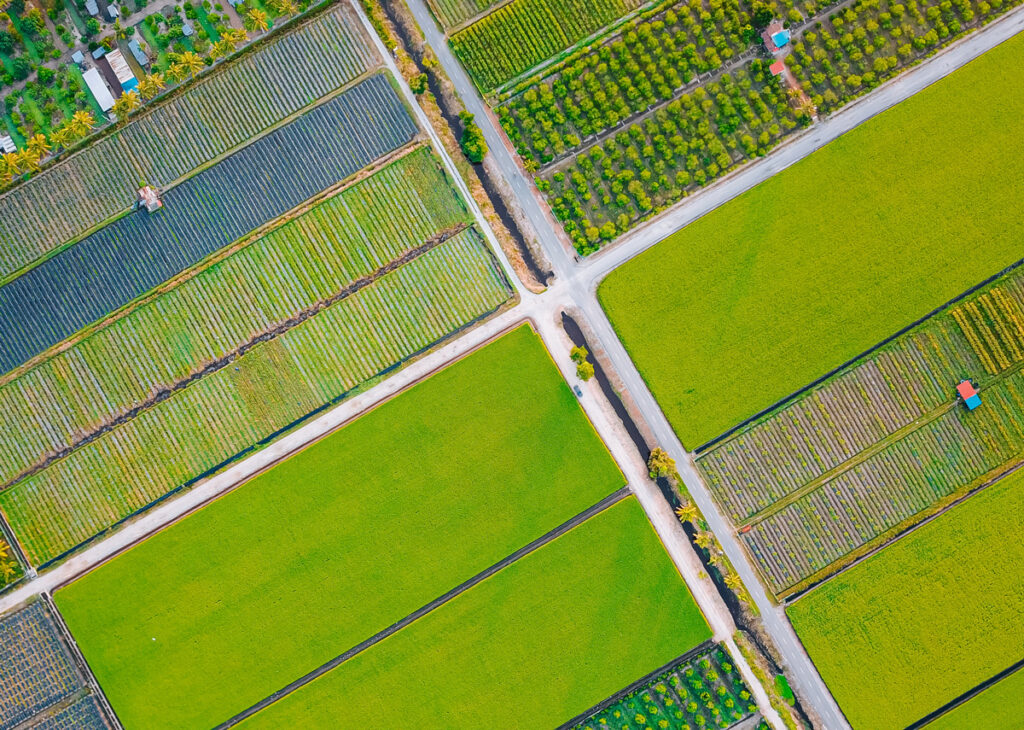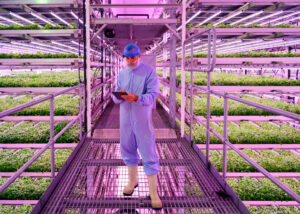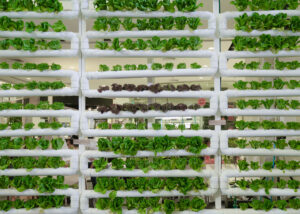Agriculture is key to economic growth. A recent report by the World Bank reveals that agriculture accounts “for 4% of global gross domestic product (GDP) and in some least developing countries, it can account for more than 25% of GDP.”
Around 429 thousand people in the UK are employed in agriculture, generating approximately 9.3 billion tonnes of food annually (on a global scale). It also takes up half of the world’s habitable land, providing food and habitat for several natural species.
Many agricultural businesses are managed sustainably, focusing on improving soil health and water quality, protecting watersheds, and preserving and restoring critical natural habitats. However, there is no escaping from the fact that agriculture, forestry and land use change are responsible for around 25% of greenhouse gas emissions.
Why does sustainability in agriculture matter?
One of the most critical issues around sustainability is how and where we produce food, especially considering that around 9.7 billion people will populate the earth by 2050. The challenges faced when growing food to feed these many people get more complicated every day. How are we going to provide for them all?
What impact does agriculture have on the planet?
While correctly controlled agriculture can have a positive impact on the planet by providing opportunities to converse biodiversity, it also brings many challenges for sustainability, including:
- Climate change – The Food and Agriculture Organisation (FAO) of the United Nations (UN) states that the livestock sector of the agriculture industry is responsible for 18% of greenhouse gas production. Many other standard farming practices, such as burning arable fields and using diesel-fuelled machines, also contribute to a build-up of greenhouse gases.
- Pollution – Fertilisers, pesticides and other chemicals can poison the air, fresh water, and marine ecosystems thanks to run-off.
- Poverty – Three-quarters of the world’s population lives below the poverty line, and agriculture is the only viable way for them to make a livelihood. However, government subsidies can encourage them to overproduce crops, which can drive down prices globally and can cause other producers to cut corners to produce more.
- Water consumption – The agriculture industry is responsible for 69% of the planet’s freshwater consumption, which can degrade water quality and harm freshwater systems globally.
How Gelponics can help make agriculture more sustainable
Our Gelponics product is ideal for vertical farming or controlled environment agriculture as it removes the need for soil altogether.
Crops are grown in a greenhouse environment, where light, water, and food are managed all year round, meaning crops can be grown locally all year round. Crops can be grown in a small area, so vertical farms can be placed in urban areas closer to customers.
If you are interested in learning more about Gelponics and how it can help your agriculture business be more sustainable, please contact us at contact@aehinnovativehydrogel.com or 07867 502 247.


